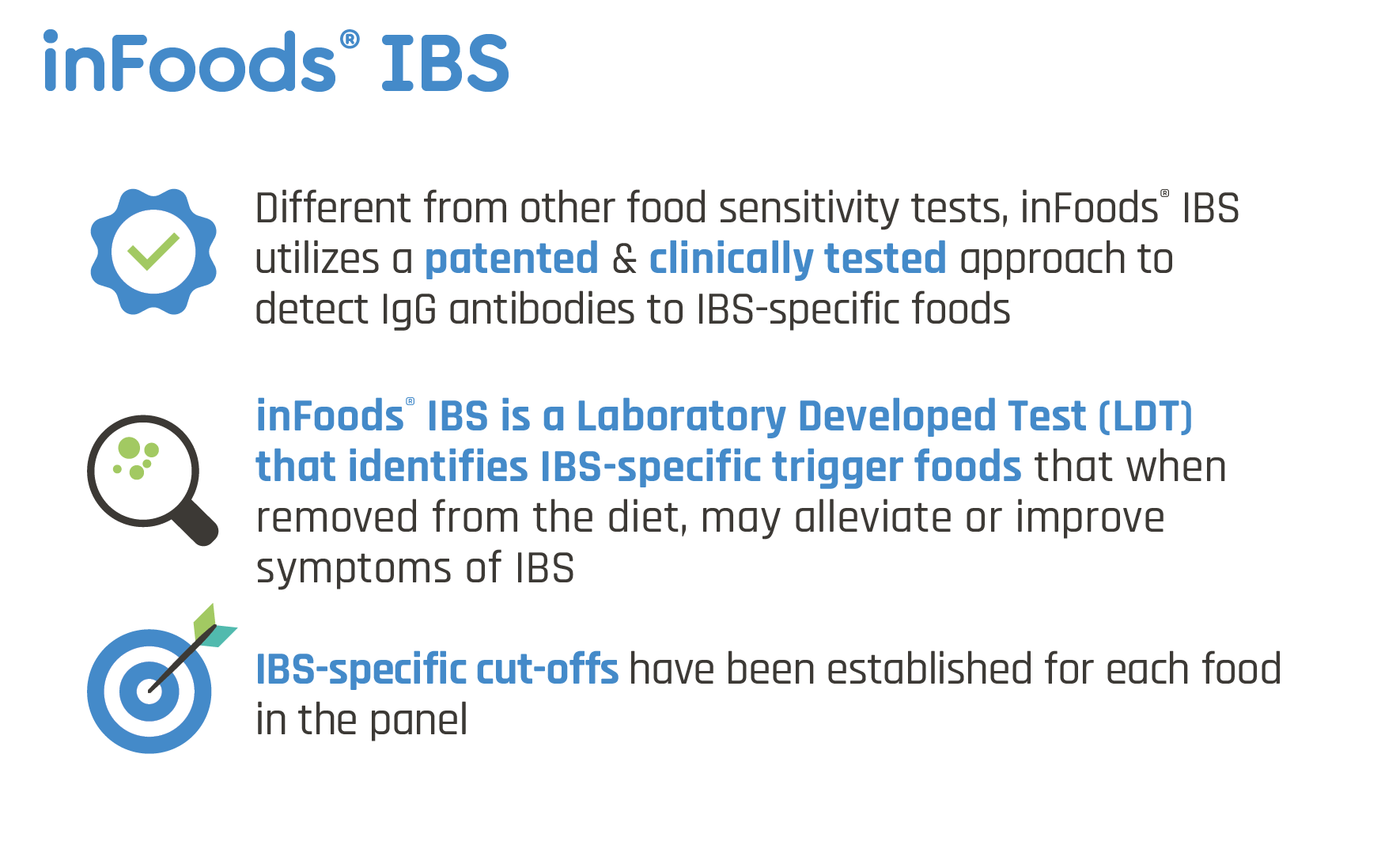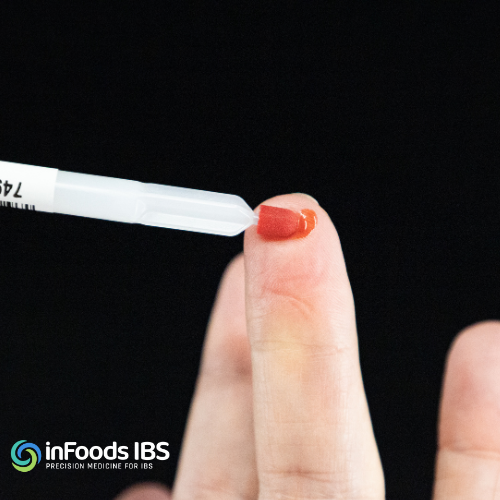
A Revolutionary Tool for Physicians Treating Patients with IBS

inFoods IBS is a new proprietary test designed to help identify food-triggers of IBS
 70-80% of irritable bowel syndrome (IBS) patients say food exacerbates or triggers their symptoms but most cannot identify their offending foods. inFoods® IBS identifies IBS-specific trigger foods that when removed from the diet, may alleviate or improve pain, bloating or other IBS symptoms.
70-80% of irritable bowel syndrome (IBS) patients say food exacerbates or triggers their symptoms but most cannot identify their offending foods. inFoods® IBS identifies IBS-specific trigger foods that when removed from the diet, may alleviate or improve pain, bloating or other IBS symptoms.
In a Prospective, multi-center, double-blind, placebo-controlled study, an inFoods® IBS elimination diet demonstrated a remarkable and statistically significant reduction in IBS symptoms over an 8-week period.
HOW IT WORKS
inFoods® IBS helps to identify foods that trigger IBS symptoms
inFoods® IBS is a laboratory developed test (LDT) designed for the identification of foods that cause an elevated immune response in IBS patients (food-specific IgG antibodies) that may cause or trigger symptoms such as pain and bloating.
Trigger foods and specific cut-off levels were selected for each food in the inFoods IBS panel by comparing the immune responses in healthy control subjects to IBS patients. (A cut-off level is the value used to determine if someone is positive or negative for the food.)
inFoods® IBS was clinically studied at the nation’s leading medical centers (Mayo Clinic, Harvard, University of Michigan, University of Texas Medical Center) with actual IBS Patients. When IBS patients in the study stopped eating foods identified by inFoods® IBS, the majority experienced significant improvement in their IBS symptoms including pain, bloating and bowel movement urgency.
New Micro-Sampling Whole Blood Collection Technology
In addition to venous blood draw, the CLIA laboratory has validated a finger-stick blood collection method to simplify sample collection.
A health provider can quickly collect a blood sample during a patient's office visit.
This workflow enchantment simplifies the process to order the inFoods IBS test and is more convenient for patients too.

What if the results from a simple blood test could decipher which foods trigger IBS symptoms?

